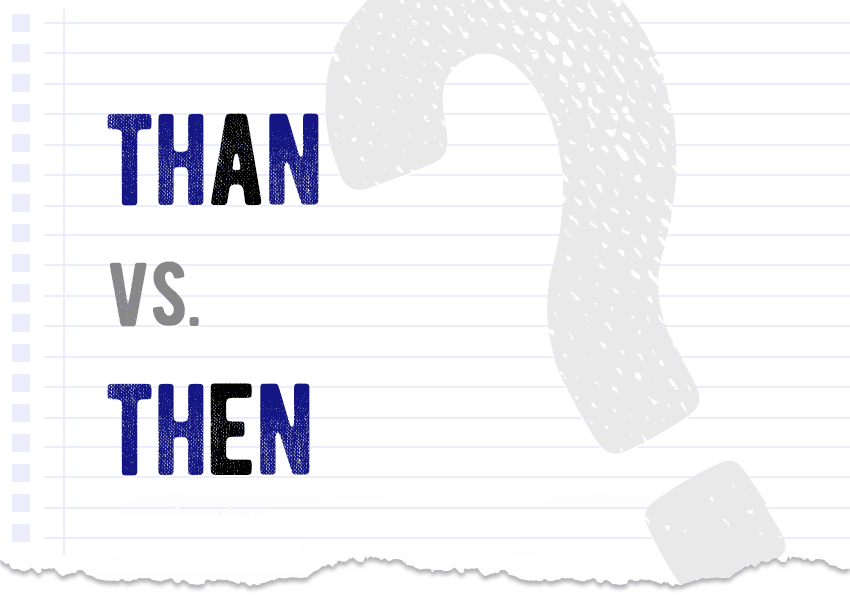Than or then – what is the difference?
Than and then — have you ever confused them? Who has not! In fact, in Middle English they were the same word. However, as we no longer live in the medieval era, we should better know the difference between the two.

Than or then
Than and then are two of the most commonly used (and misused) English words. There are often ignored, as, let us be honest, we pay more attention to other linguistic entities, like nouns, verbs and adjectives. Than and then are homophones — they look similar, sound the same, and generate constant confusion, as homophones usually do:
Than – meaning and use
Than functions as a conjunction, and it introduces unequal comparison. It is often accompanied by comparative adjectives, and words like ‘other’, ‘rather’, ‘less’, ‘more’. Sometimes than appears as a preposition, and in such case it means ‘in relation to’, or ‘by comparison with’. Than is moreover an essential element in an impressive number of idioms, just to list a few:
- actions speak louder than words,
- better late than never,
- easier said than done,
- more fun than a barrel of monkeys,
- bite off more than you can chew.
Then it is time for then
Then is an adverb, used when talking about something related to time. It means ‘at that time’, ‘soon after’, ‘later’, ‘in consequence’ or ‘in addition’. It often appears with ‘until’ and ‘since’. Then functions in many useful phrases too, and it is worth remembering at least some of them:
- every now and then,
- then and there,
- goodbye till then,
- that was then, this is now,
- if wishes were horses, then beggars would ride.
Than or then – literary examples
I believe a strong woman may be stronger than a man, particularly if she happens to have love in her heart. I guess a loving woman is indestructible.
John Steinbeck, East of Eden, 1952
Sometimes I feel sure he is as mad as a hatter and then, just as he is at his maddest, I find there is a method in his madness
Agatha Christie, The Mysterious Affair at Styles,1920


